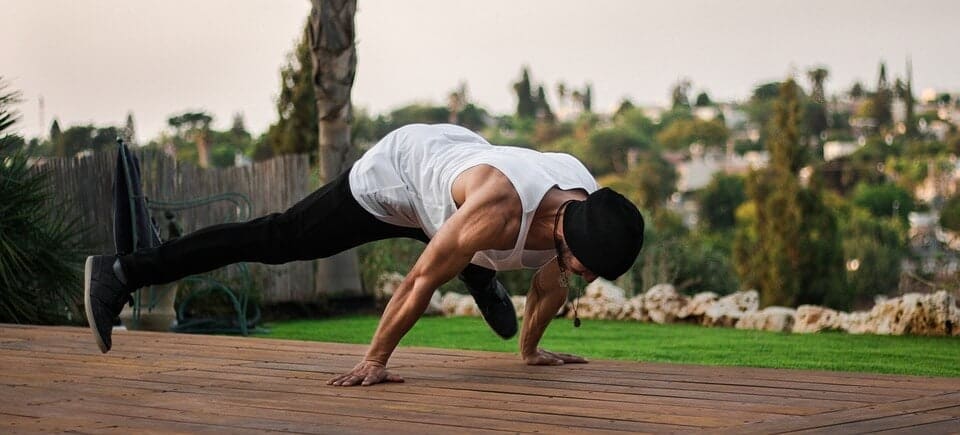Are you bed-bound due to infirmity or injury? Here are some exercises to try to keep you as active as possible.
Being bedridden or bed-bound means that a person cannot leave their bed for a prolonged period of time. For some, this could be for a few days or weeks, but for others, this could be a permanent fixture.
There are several reasons a person might become bed-bound due to injury or disability. For example, you might have passed the time limit for medical negligence claims, meaning you cannot get the care or equipment you need to leave bed sooner. Or, you might simply need some temporary advice to help you recover from your injury.
Whatever the situation, in this article, we’ll be exploring why a person might become bed-bound and how this can impact the body. We’ll then be discussing some potential exercises you can try while in bed to help avoid these consequences.
Why Might a Person Become Bed Bound?
There are a few reasons why a patient might become bedridden, including:
- Brain disease or injury, like dementia
- Coma
- Infirmity due to old age
- Bone breakages
- Recovering from surgery
- Dealing with the consequences of medical negligence
What Are the Effects of Being Bed Bound?
The Belvedere Health Services have provided a complete list of how being bedridden can affect the body. These include, but are not limited to:
Bed Sores
Bedsores, or pressure ulcers, occur when a person lies or sits in the same position for an extended period of time. This is because the body’s weight puts pressure on the joints and reduces blood flow to areas of the skin. This reduced oxygen level means areas of the body begin to die and become infected.
The sores caused by this can be large and painful and are often hard to treat. This is why the patient needs to rotate their positions frequently.
If this isn’t possible to do alone, caregivers should be sure that patients are being rotated. Also, moisture on the skin should be cleaned away, and damage to the skin should be avoided at all costs.
Lung Problems
Pulmonary congestion is when the lungs fill with fluids and mucus due to immobility. This can lead to pneumonia and other such complications. Breathing exercises, not overeating, and sitting up in bed often can help to avoid this.
Problems with Blood Flow
As mentioned before, sitting in the same position for a long time can lead to decreased blood flow, which may cause an increased heart rate. This can then lead to hypotension, or low blood pressure, and thromboembolism, or blood clots. If these form and become dislodged in the heart or brain, stroke and heart attack may occur.
Back Pain
Remaining in one position for an extended time period puts pressure on the spinal column, leading to back pain. Again, changing positions frequently can help to avoid this.
Loss of Muscle Mass
Without supporting your limbs as you would when standing up, your muscles begin to waste away. This can cause muscle stiffness and loss of muscle tone.

Weakened Bones
In a similar sense, not making use of bones and joints can lead to contractures and osteoporosis from disuse. In addition, the degeneration of joints can occur too, which can lead to difficulty moving, and pain too.
Bowel Troubles
Being restricted to the bed can put pressure on the digestive tract and colon, and lack of exercise can also impact digestion. This can stop the system from operating smoothly, causing constipation.
Mental Health Problems
Naturally, being constricted to a bed can have a significant impact on a person’s mental health. In addition, not being able to get outside or walk around at the drop of a hat can be difficult for many. It can also put a strain on many relationships.
Because of this, depression is a common side effect of being bed-bound. What’s more, trouble sleeping often occurs due to irregular sleep schedules and pain, which can exacerbate the anxiety and depression already in place. This is why emotional support is paramount to maintaining a healthy mind.
5 Stationary Exercises to Try While You’re Bed Bound
Now that we know why it’s essential to keep active while bedridden, here are some ideas for exercises to try…
Palm Stretches
Flexing and unflexing your palms open and closed can help you stretch your hand muscles not to lose their range of motion.
Joint Flexes
RyleyRehab provides a brilliant video for people to follow if they cannot sit upright in their bed. In his video, he starts by flexing his ankles back and forth to get his joints moving and avoid stiffness. You can then do the same with your wrists by rotating and flexing them back and forth.
Arm and Leg Lifts
If ankle flexes aren’t doing it for you, arm and leg lifts might be just what you need to keep your muscles from wasting away. Simply straighten your limbs and slowly lift each limb one at a time as many times as you are able.
Heel Slides
If leg lifts are a little too hard for you right now, or you simply want to use some of your other leg muscles, try heel slides. This is very simple and requires you to bend your knee up to the ceiling and then slide your foot back down again, so your leg is flat. Repeating this process on both sides could help to keep your muscles from wasting away.
Make Use of Equipment
If you can, you could even purchase some in-bed medical exercise equipment to help you to do some more vigorous exercises. Some examples to help make the above tasks trickier could include:
- Weights
- Resistance bands
- Exercise putty
- Sponge balls


Most importantly, if your condition will require you to be in bed at home for a prolonged period of time, never hesitate to invest in a hospital bed that would give you the maximum comfort and safety you need while recuperating. You can start by checking out these Premium hospital beds for Home Care.
Let’s Get Active!
Clearly, being bedridden can have a significant impact on the body. In addition, being in this situation for a prolonged period of time can impact a person’s physical health and mental health.
This is why keeping as active as possible despite these constrictions is paramount to aid your recovery or simply avoid the symptoms we’ve listed. Remember, though, that everyone is different, and these exercises may or may not be suitable for you to try. Be sure to consult your doctor to get their expert advice on your specific situation before trying anything.
Please be advised that this article is for general informational purposes only and should not be used as a substitute for advice from a trained medical professional. Be sure to consult a medical professional or healthcare provider if you’re seeking medical advice, diagnoses, or treatment. We are not liable for risks or issues associated with using or acting upon the information on this site.
Featured Photo by Annie Spratt on Unsplash




